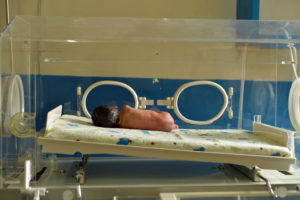November is Prematurity Awareness Month in the US, and the 17th is World Prematurity Day. But I never need any reminders about the importance of access to medicines and services for premature babies. Every November, I celebrate the birthday of my own little preemie. On November 30, 1997, I went into labor just after reaching 32 weeks. I was terrified. I had had a healthy second pregnancy up to that point and my doctor did not believe me at first when I told her I was in labor. After a somewhat traumatic trip to the clinic and then the delivery, my tiny bundle of joy arrived, weighing in at a meager 1.5 kg (3.3.lbs). We were so very lucky to have access to excellent health services, not just for delivery and newborn care, but for his whole first year or so of life, when visits to the doctor to check on his heart, lungs, eyes and overall development were a weekly occurrence.

Others are not so lucky. According to the World Health Organization (WHO), preterm birth is now the leading cause of newborn deaths and the second leading cause of death in children under five. Every year approximately 15 million babies are born preterm, and the number is rising. As with so many conditions that affect women and children, almost 75 percent of deaths related to preterm birth could be avoided with known, cost-effective interventions, and access to essential medicines and supplies. But again, as with so many conditions that affect women and children, in many countries weak health systems are unable to deliver these medicines and services, and to provide the necessary support to manage the long-term consequences of prematurity.
The US Agency for International Development (USAID)-funded, MSH-led Systems for Improved Access to Pharmaceuticals and Services (SIAPS) program, of which I am proud to be a part, works to strengthen health systems so that women and children have access to the medicines and services they need, when and where they need them. SIAPS is involved in global initiatives, such as the UN Commission on Life-Saving Commodities for Women and Children, aimed at improving availability of quality medicines and supplies for mothers during childbirth, and their newborns.
My little preemie will turn 17 at the end of November. He’s a straight-A student, a varsity athlete and president of his class. We were fortunate indeed. During Prematurity Awareness Month, and especially World Prematurity Day on November 17, let’s remember those who are not so fortunate and think about innovative ways to increase access to medicines, supplies and services for preemies and their moms.
About the author: Beth Yeager is the SIAPS Program principal technical advisor for Reproductive, Maternal, Newborn and Child Health (MNCH).

